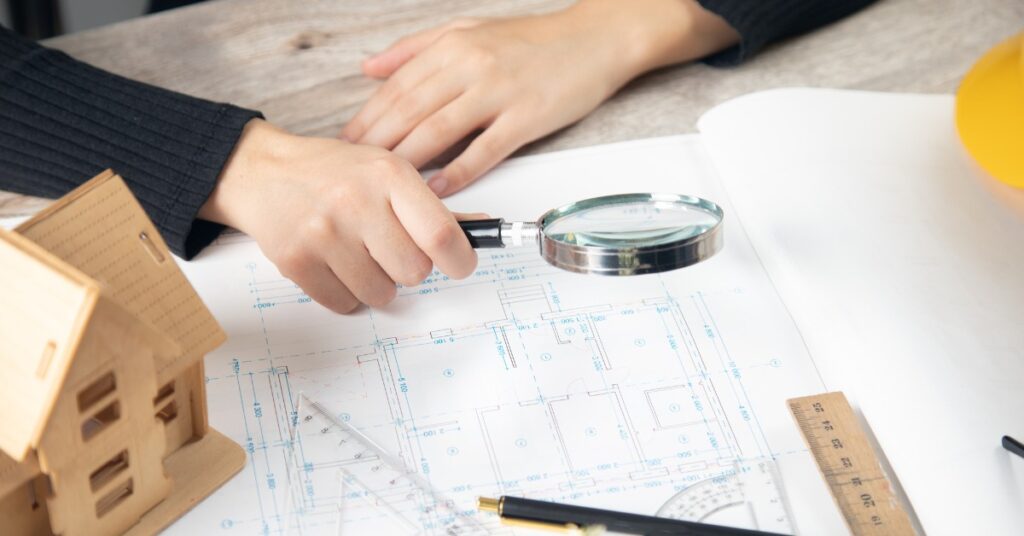Purchasing real estate, whether it’s a new home or a piece of land, is an exciting milestone. However, it’s not without its challenges, particularly the financial and emotional investment involved. One of the most crucial steps in this process is property inspection. Before committing to a down payment, conducting a professional property inspection can save you from unforeseen issues, help you make an informed decision, and ensure the safety of your investment.
Here’s a detailed exploration of why property inspections are indispensable, with answers to key questions about the process.
What Does a Property Inspection Uncover?
A property inspection is a detailed examination of a property’s condition, typically conducted by a licensed inspector. This process identifies potential issues such as:
- Structural Problems: Cracks in the foundation, uneven floors, or compromised load-bearing walls.
- Plumbing and Electrical Issues: Leaky pipes, outdated or faulty wiring, and non-compliant installations.
- Roofing and Insulation Deficiencies: Missing shingles, leaks, and insufficient insulation.
- Pest Infestations: Signs of termites, rodents, or other pests.
Early detection of these problems allows buyers to either negotiate repairs or reconsider their investment before finalizing the purchase.
How Does Property Inspection Protect Your Investment?
Your property is not just a home; it’s also a significant financial asset. A thorough inspection ensures you’re aware of its actual value and condition, helping you avoid overpaying. Here’s how it safeguards your investment:
- Negotiation Power: Armed with the inspection report, you can request the seller to address issues or lower the property price to accommodate repair costs.
- Long-term Maintenance Planning: Knowing the property’s current condition allows you to budget for future repairs and renovations, preserving its value over time.
What Safety Concerns Can Inspections Reveal?
Safety should always be a top priority when purchasing property. Inspections often uncover hidden hazards such as:
- Mold and Mildew: These can compromise indoor air quality and pose health risks.
- Obsolete Wiring: Outdated electrical systems increase the risk of fires.
- Structural Flaws: Weak foundations or poorly maintained support systems may be unsafe.
Addressing these concerns before moving in ensures your property adheres to safety codes, protecting both your family and your investment.
Why Is Budgeting for Repairs Crucial?
Even properties that seem perfect on the surface may require repairs or maintenance. An inspection provides a clear picture of potential expenses, allowing you to plan ahead.
- Cost Management: Understanding repair costs upfront prevents financial strain later.
- Realistic Budgeting: Buyers can allocate funds effectively, balancing the cost of immediate repairs with long-term maintenance needs.
How Does Inspection Support Future Renovations?
Planning to renovate your property? A detailed inspection is essential for assessing the feasibility and scope of your ideas.
- Structural Assessment: Ensures that your renovation plans won’t compromise the property’s integrity.
- System Compatibility: Verifies that existing systems, such as plumbing and electrical, can support new installations.
- Accurate Costing: Helps estimate renovation costs more precisely, reducing the risk of budget overruns.
What Are the Emotional Benefits of a Property Inspection?
Buying real estate is as much an emotional journey as it is a financial one. An inspection provides peace of mind, allowing you to focus on the joy of owning a new property rather than worrying about potential issues.
- Confidence in Decision-Making: Knowing the property’s condition eliminates second-guessing.
- Stress Reduction: Letting professionals handle the inspection process alleviates pressure on buyers.
Can a Property Inspection Save Money in the Long Run?
Absolutely. A property inspection is a small upfront cost compared to the potential expenses of addressing undisclosed issues after purchase. Here’s how it pays off:
- Preventing Major Repairs: Early detection of problems avoids costly emergencies later.
- Avoiding Bad Investments: Identifying deal-breaker issues prevents buyers from investing in properties that are more trouble than they’re worth.
How to Choose a Reliable Property Inspector?
Selecting a qualified professional is vital for an accurate inspection. Consider the following when hiring:
- Licensing and Certification: Ensure the inspector has the necessary credentials.
- Experience: Look for inspectors with a solid track record in evaluating properties similar to yours.
- References and Reviews: Check testimonials from previous clients to gauge reliability and thoroughness.
Key Takeaways: Why Inspections Are Non-Negotiable
A property inspection is an indispensable step in the real estate buying process, providing insights into the condition, safety, and value of a property. It empowers buyers to:
- Identify potential problems early.
- Protect their financial and emotional investment.
- Negotiate better terms or make informed decisions about whether to proceed with the purchase.
Ultimately, investing in a thorough property inspection is a decision that ensures your peace of mind, safeguards your finances, and sets the stage for a secure and enjoyable future in your new property. Don’t overlook this critical step—it could be the difference between a dream home and a costly mistake.



